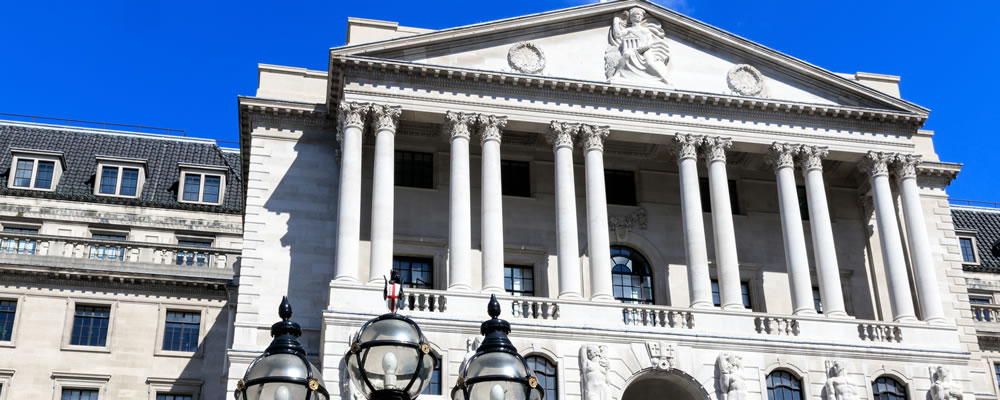- Pound Euro Exchange Rate Reaches 1.14 – Recovers from Wednesday’s 2017 low
- BoE Hawk Ian McCafferty Boosts Pound – Euro lacks fresh appeal this week
- GBP Forecast: UK Inflation on Tuesday – Could affect Bank of England (BoE) speculation
- EUR Forecast: Eurozone Inflation Next Week – As well as ZEW economic sentiment
The Pound Euro exchange rate extended its weekly high once again towards the end of Friday’s European session, as investors reacted to the latest US ecostats.
June’s US inflation results fell short of expectations, which had a negative impact on 2017 Federal Reserve rate hike bets and the US Dollar.
With persistent uncertainty about the Fed and ECB outlooks, the Pound strongly benefitted from the US Dollar weakness. GBP EUR trended above the key level of 1.14 towards the end of the week.
[Previously updated 12:55 BST 14/07/2017]
GBP EUR could be on track to end the week near a weekly high, following its 2017 low earlier in the week.
Investors continue to buy the cheap Pound from its lows, while the Euro was sold on Friday due to underwhelming growth data from Ireland.
According to Ireland’s Q1 Gross Domestic Product (GDP) results, quarter-on-quarter growth contracted at 2.6% rather than slowing to 2% as forecast. The year-on-year figure beat expectations of 5.2% however, coming in at 6.1%.
[Published 06:30 BST 14/07/2017]
The Pound Euro exchange rate continued its recovery on Thursday. Investors continue to speculate that the Bank of England (BoE) is becoming gradually more hawkish, keeping the Pound above its lows.
GBP EUR began the week at around 1.1305. After plunging to a 2017 low of 1.1185 on Wednesday morning, the pair has recovered and on Thursday traded near a new weekly high of 1.1349.
Pound (GBP) Supported by BoE Hawk McCafferty
While it came as no surprise to investors that hawkish Bank of England (BoE) policymaker Ian McCafferty took a hawkish tone in his speech on Thursday, his argument that the bank should at least discuss the withdrawal of quantitative easing (QE) was enough to boost Pound demand throughout the day.
Following key monetary policy tightening from the Federal Reserve and Bank of Canada (BOC) this year, McCafferty stated;
‘Given that other central banks are thinking about it, I think it would be remiss of us not to at least think about it.’
He indicated that he was still fully willing to vote for a UK interest rate hike in August’s policy meeting, as he did in June.
Most BoE members remain cautious or dovish, making the chances of any change in policy in the near future slim. Regardless, McCafferty’s argument increased market speculation that the bank would discuss the removal of QE in the coming months even if no action is taken yet.
This also gave markets a good opportunity to continue buying a cheap Pound from its recent lows, after the recovery was prompted by UK job data on Wednesday.
The latest UK employment report was generally impressive. The unemployment rate unexpectedly improved to 4.5% while wage growth was higher than expected at 2% excluding bonuses.
Euro (EUR) Lacks Fresh Market Appeal
Sterling has easily recovered from its lowest levels against the Euro this week. A lack of further downside potential in GBP EUR, as well as a lack of fresh Euro strength, left the shared currency limp.
Thursday saw the publication of the final June inflation results from Germany, France and Spain. All the key prints met preliminary projections, meaning there were no surprises for markets.
German inflation came in at 1.6% year-on-year, while French inflation hit 0.7%.
Investors have been largely unsurprised by recent strong Eurozone data overall. Economic forecasts for the Eurozone are solid, so investors are more interested in the European Central Bank’s (ECB) monetary policy outlook than Eurozone ecostats.
While the bank recently indicated it was not planning to expand or extend its quantitative easing (QE) program, bank officials have shown uncertainty and dovishness about when exactly QE could be withdrawn.
Many officials continue to argue that the Eurozone still needs monetary stimulus.
Pound Euro Forecast: Key Inflation Data Next Week
Friday is unlikely to see any big movements from the Pound Euro exchange rate, unless new comments are made by Bank of England (BoE) or European Central Bank (ECB) officials.
The day’s Eurozone ecostats are unlikely to be notably influential. However, if the day’s trade balance results from The Netherlands or overall Eurozone impress, the Euro could see firmer trade. Ireland’s Q1 Gross Domestic Product (GDP) results could also influence the Euro slightly.
The next big GBP EUR moves are likely to come next week, when Britain and the Eurozone’s final June inflation results will be published.
If British inflation is higher than analysts expect, the Bank of England (BoE) may feel additional pressure to tighten monetary policy. This speculation could improve demand for the Pound next week.
Other UK data due for publication includes June retail sales stats, and public sector net borrowing figures.
Next week will be a big week for Euro trade, as the European Central Bank (ECB) will be holding its July monetary policy decision.
While no change in policy is expected from the ECB, any shifts in rhetoric in the policy statement, or from ECB President Mario Draghi, could have a big impact on Euro trade.
Key Eurozone data will be published throughout the week too. On Monday, the Eurozone bloc’s June inflation results will be published, which will boost the Euro if they impress.
ZEW will publish its July economic sentiment surveys for Germany and the Eurozone on Tuesday which could also influence Pound Euro exchange rate movement.



